SELECTED PORTFOLIO
TINTAGEL HISTORY AS A SERIES OF OMISSIONS
From Untold Stories Anthology, English Heritage x Shout Out Loud
Barbican Poets & The Writing Squad
‘Tintagel History As a Series of Omissions’ explores how history often erases connections to other places. Researching Tintagel Castle revealed connections to North Africa, and vital import links outsourcing olive oil, dates and spices. How can these sites be called English when their enrichment, survival and nourishment depended on elsewhere?
Full anthology accessible from here.
I’M TALKING TO WOOD, TO STONE… HISTORY COULD BRING FIRE
Film Duration: 11 minutes, 57 seconds
Trigger Warning: Scenes of violence.
From my MA 2020 Degree show at Royal College of Art:
‘Prior to travelling to Algeria to research the Karakou jacket, I sat down to discuss with my father the logistics of getting there and how I would be carrying out my work. Instead we had an argument for 20 minutes.
At the time (February 2019), Algeria was facing demonstrations and protests across the country. Known as ‘The Revolution of Smiles’, or the ‘Hirak Movement’, more than 70,000 people all over Algeria marched, demanding constitutional change. These protests are still taking place, though they have reduced in number since the onset of Covid-19. As members of the Algerian government and army began to step down, the country’s stability once again shook. There was no longer a core government, and the people were adamant President Bouteflika immediately resign, having been in office since 1999. It was not a safe place to be in, yet I was determined I’d go there.
Algeria’s story of colonialism begins 3,200 years ago. It has been conquered by the Phoenicians, the Byzantines, the Romans, the Ottomans, the French. The weight of historical trauma has crippled Algeria, and the entirety of Africa for millenia. It continues to do so. I underestimated how much it could endanger someone like me, navigating a mixed identity, protected by the English bubble I grew up in. I could not understand why my being there would be problematic or a threat, given that I had been to Algeria many times before, and given my Amazigh heritage. It was only until I looked beyond the Karakou and the confines of French fashion houses, did I then feel the blood ooze from my research. In the thick of it, I felt my grandmother’s wounds, my father’s wounds, and my own, align in an intergenerational trauma. The jacket was reduced to an artefact of colonialism, rather than a powerful symbol of Amazigh resistance.
This film is a preface to Kabyle-Girl-Karakou, as well as a messy, incomplete and violent introduction to understanding contemporary history of Algeria. It is named after my father’s exclamation in the film, ‘I’m talking to wood, I’m talking to stone... History could bring fire!’. Our discussions dissolved the ignorant preconceptions I had over travelling to Algeria, believing it would “be simple”. Film cuts from different sources, including my own work, feature the violence and war Algeria has endured for millennia. It is clear now, and always has been, that history cannot be a study of the past when it is so inherently present.’
ARCHIVE_RAPE
Excerpt Only
TW: Themes of sexual violence.
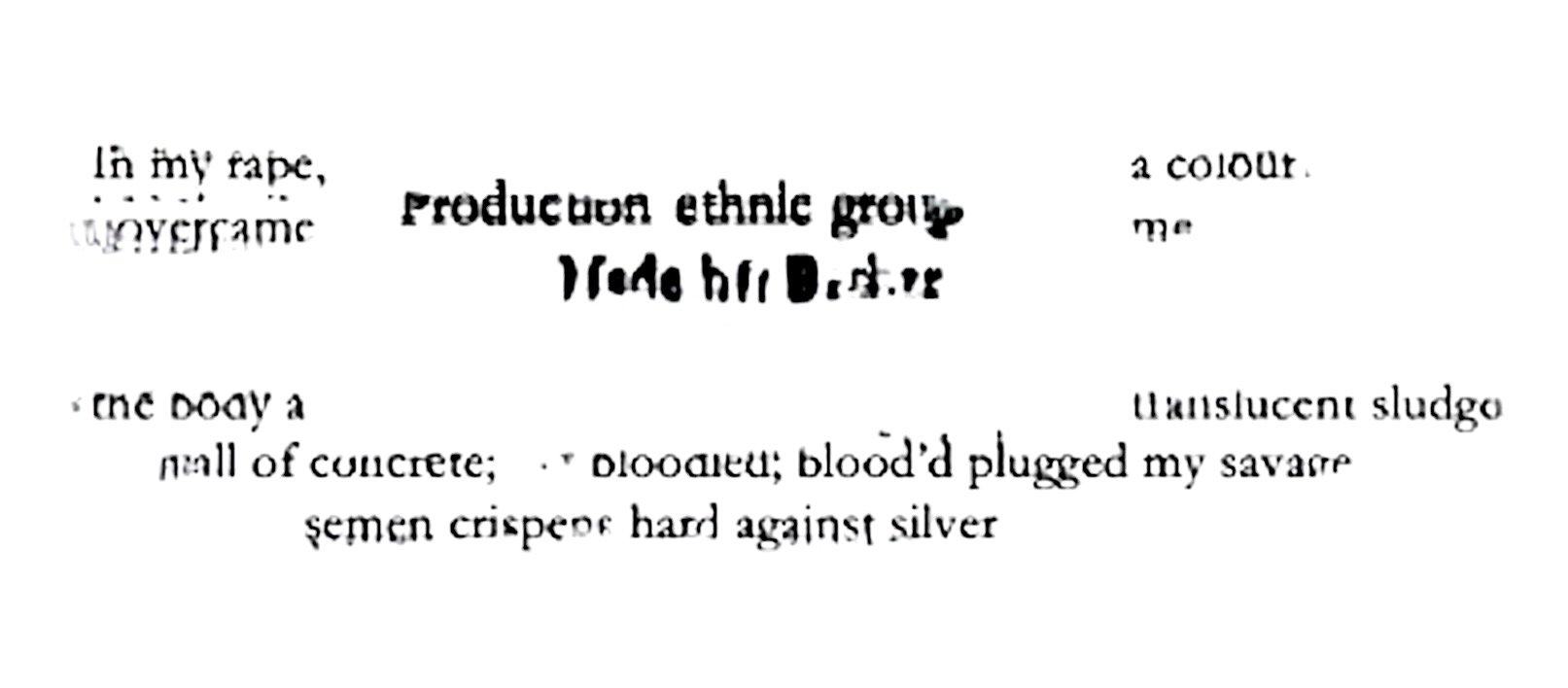
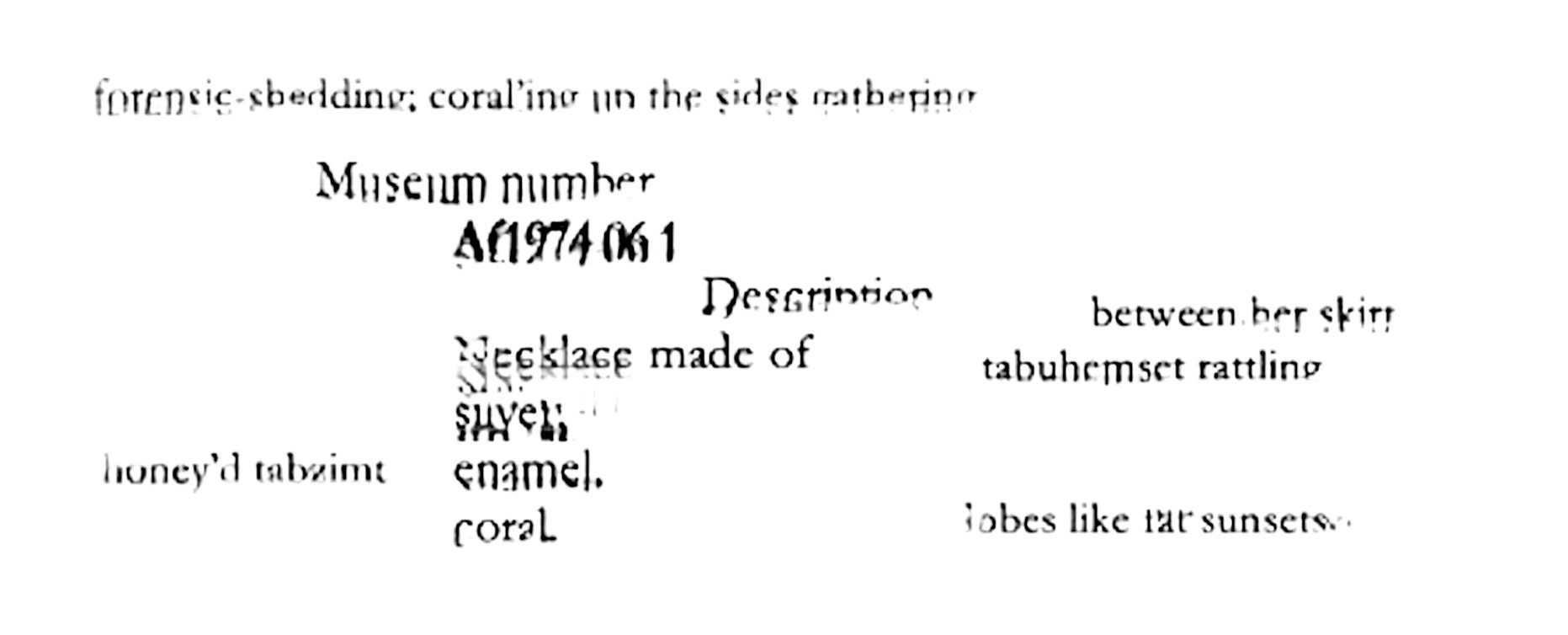
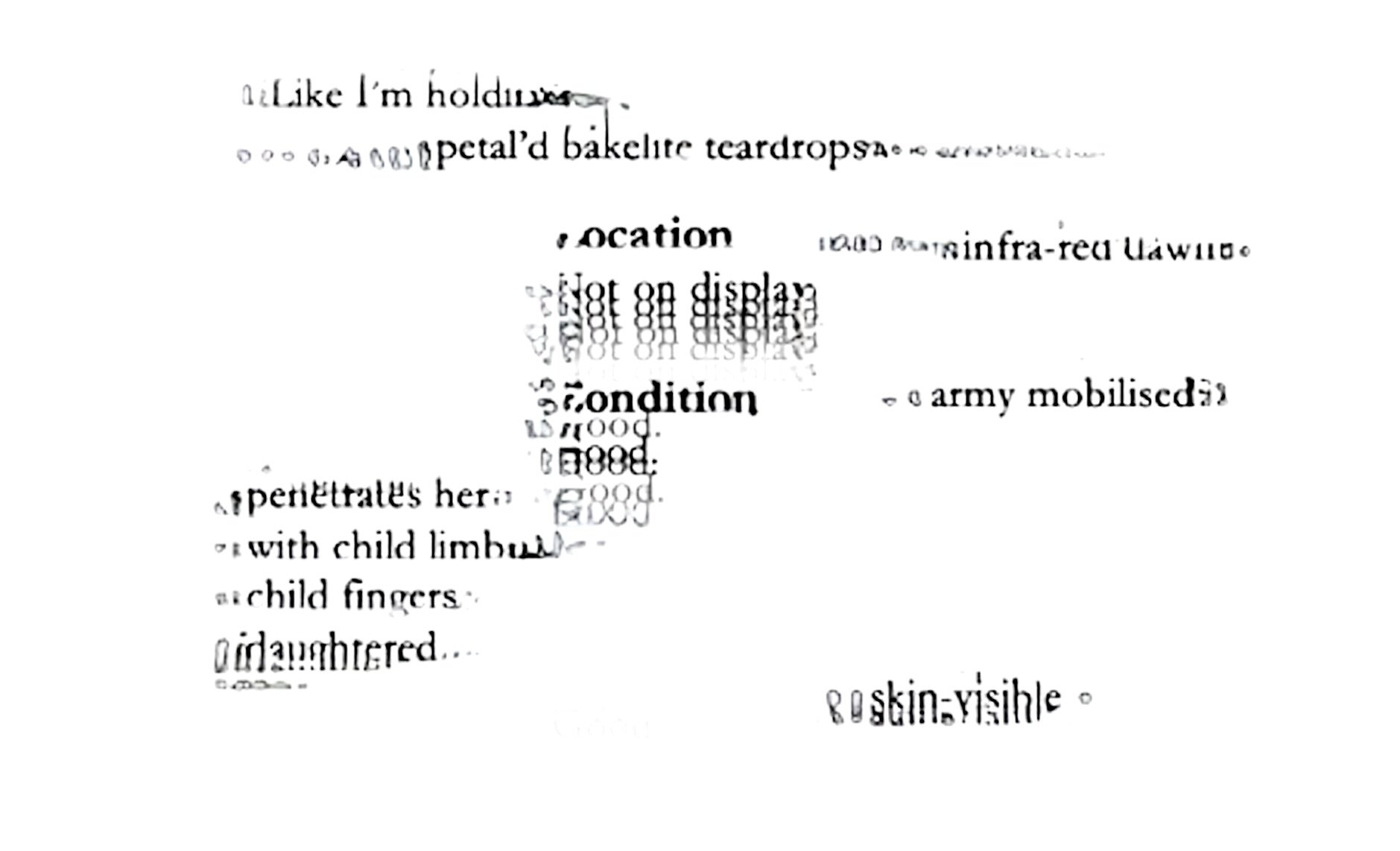
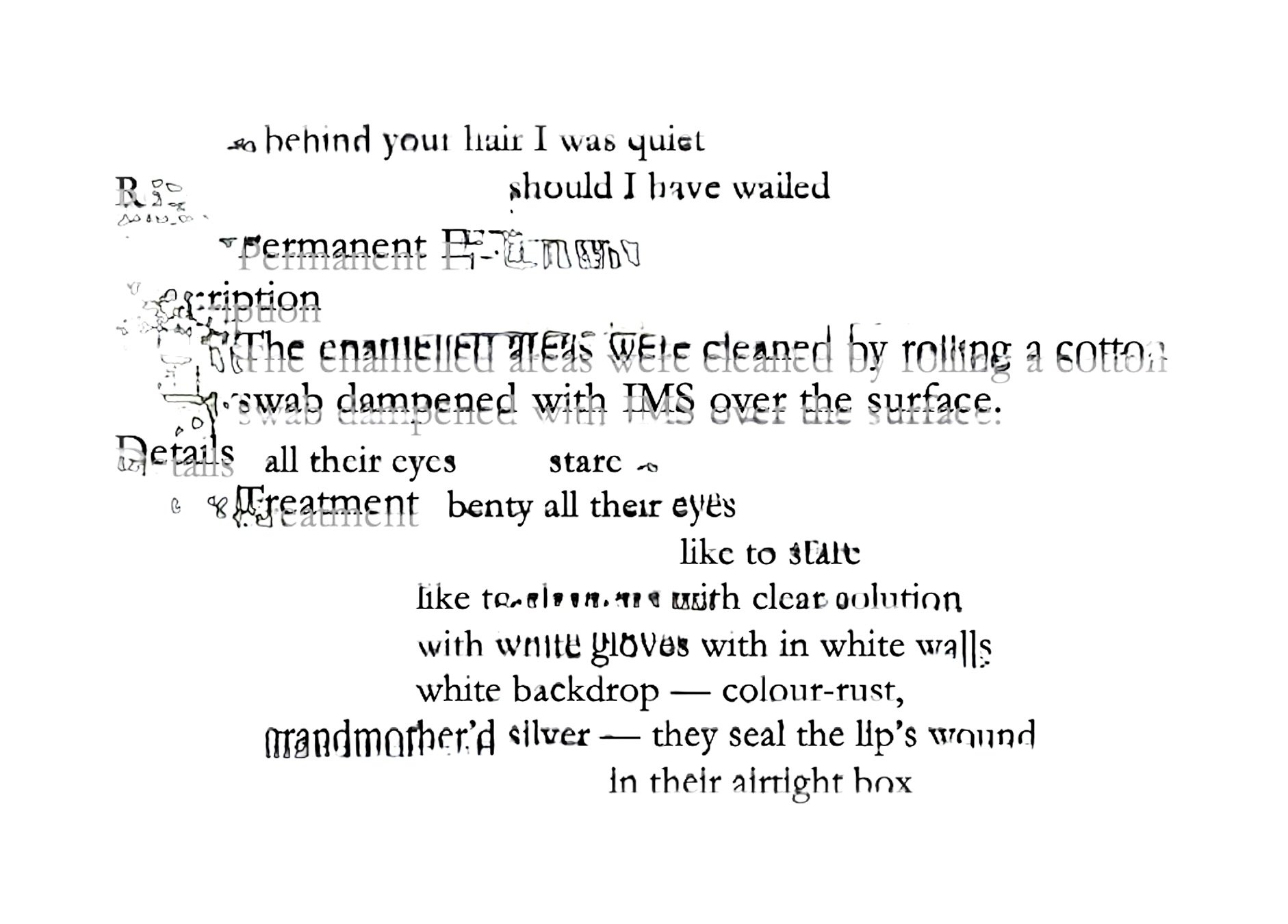
Corrosion-poems interspersed with plagiarised fragments from the British Museum’s digital catalogue archive on the Kabyle Azrar (Necklace), Item no. Af1974,06.1. Archive-Rape plagiarises fragments from the British Museum’s records on this Azrar, appearing indistinguishable from the poetry, which has been partially ‘digitally smeared’. The poetry itself is voiced by the Azrar, which has experienced all manner of rituals in and out of the museum, from mealtimes to photoshoots, first menses to conservation cleans, from sex to sexual violence. In its forced removal from its origins, this Azrar sustains its continual violation, divided from its Kabyle woman, and from the North African elements from which it was made.
Writing the Archive, an initiative led by Fahad Al-Amoudi, Prerana Kumar and myself from the Writing Squad, develops a poetics from the archive as a creative source, as well as unifying artists with their heritages.
Full text and foreword can be accessed here: Writing the Archive
THESE MUTILATED ANGELS Published by TOLKA Journal, Issue Two
Essay (Excerpt only)
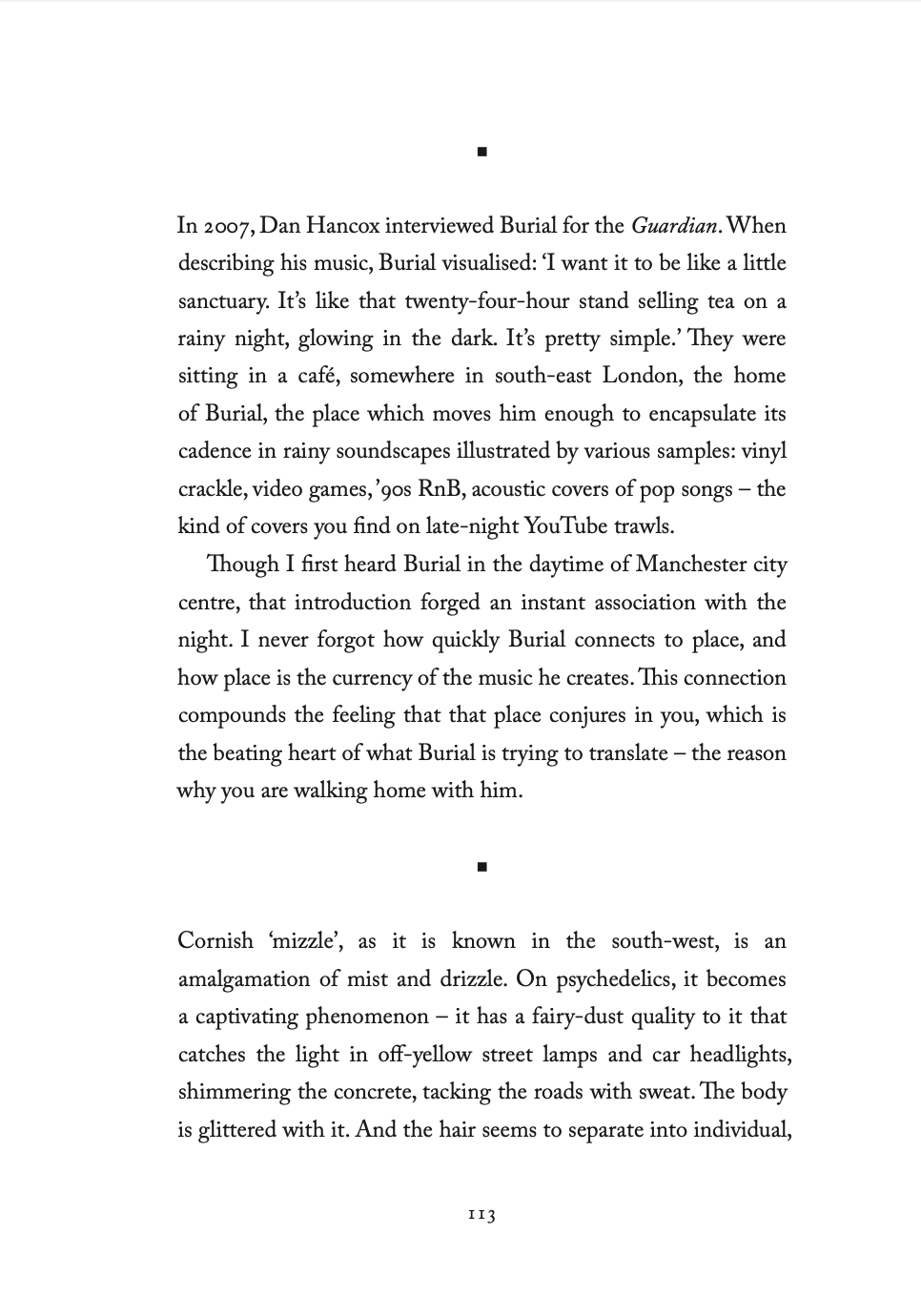
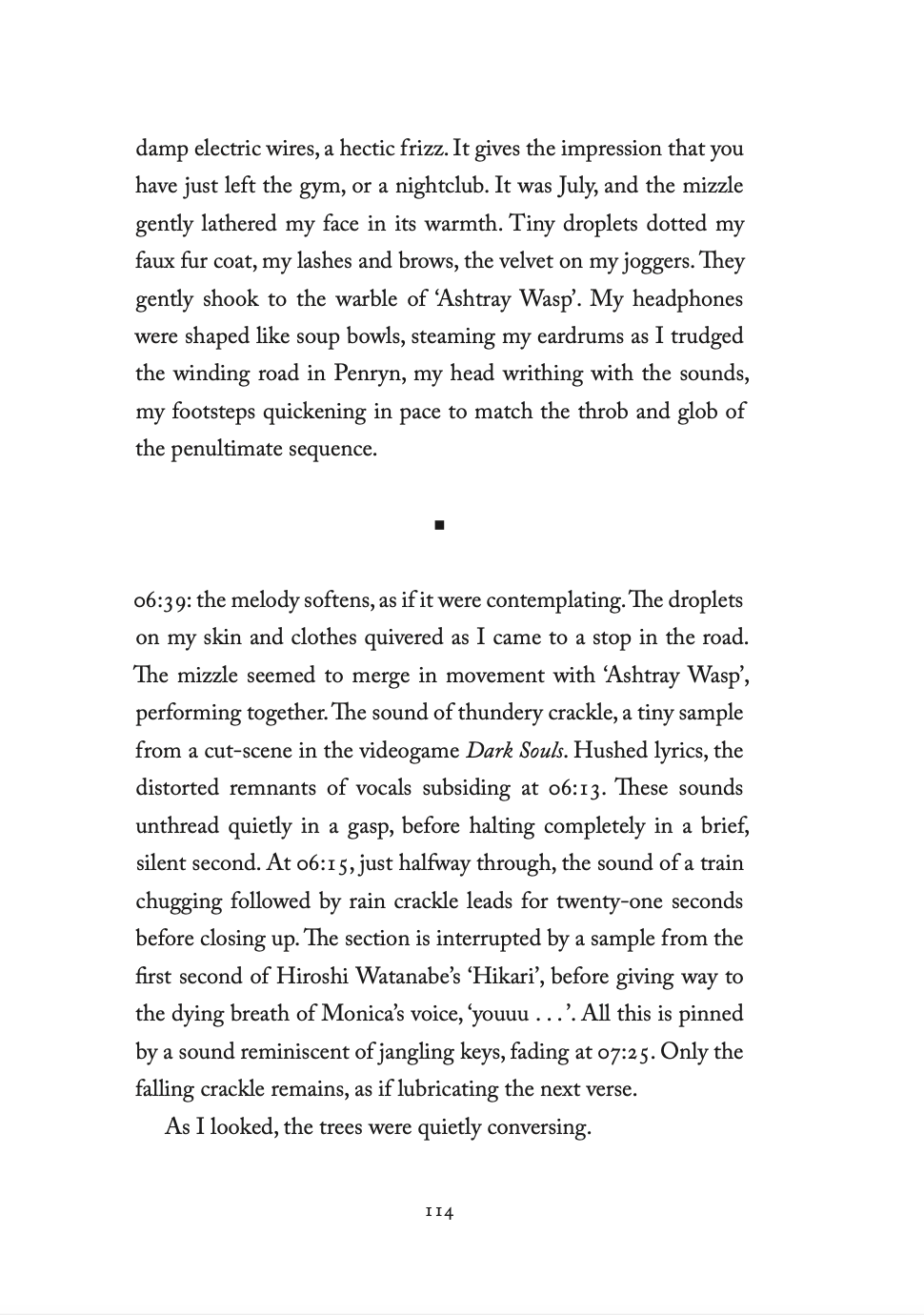
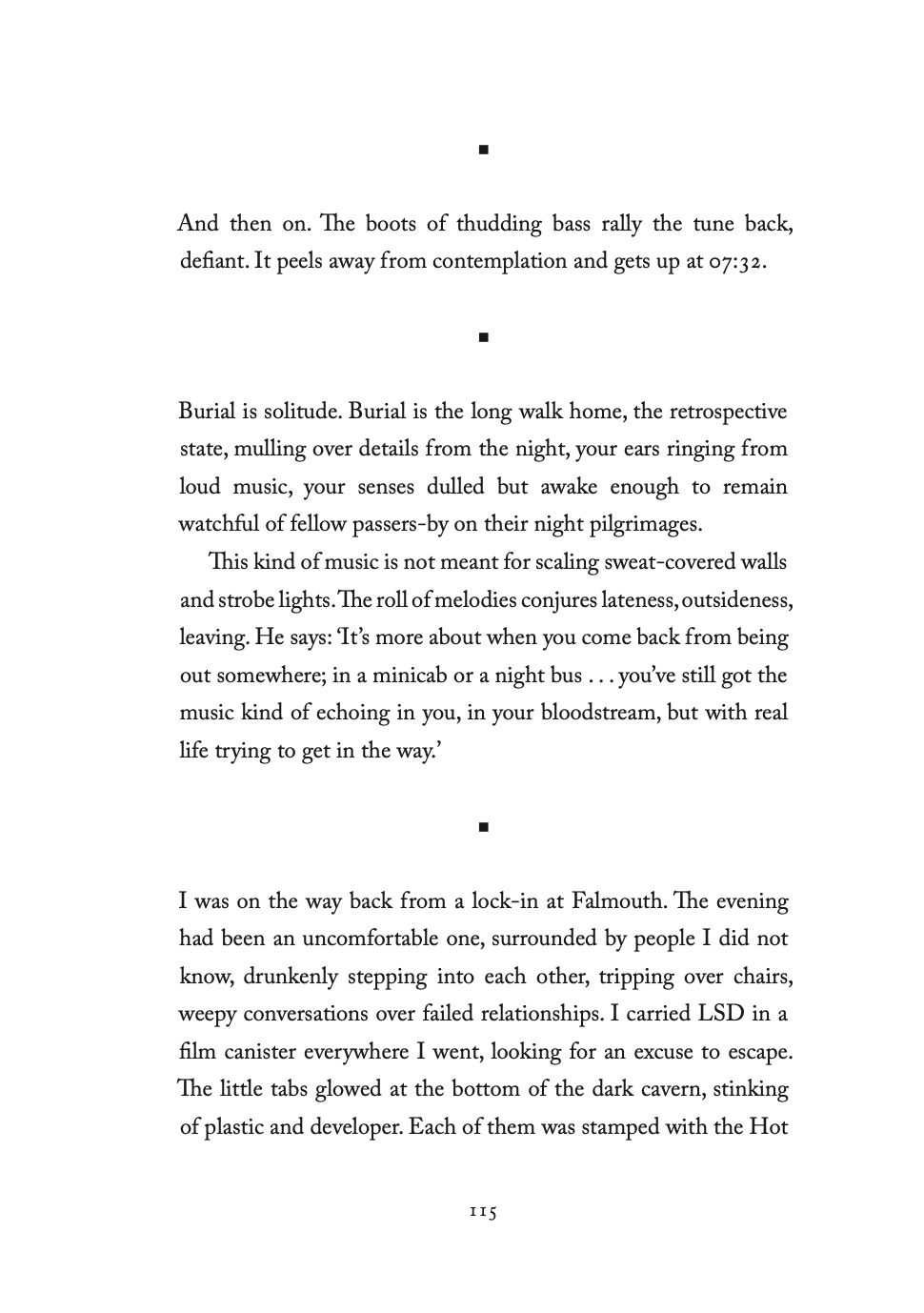
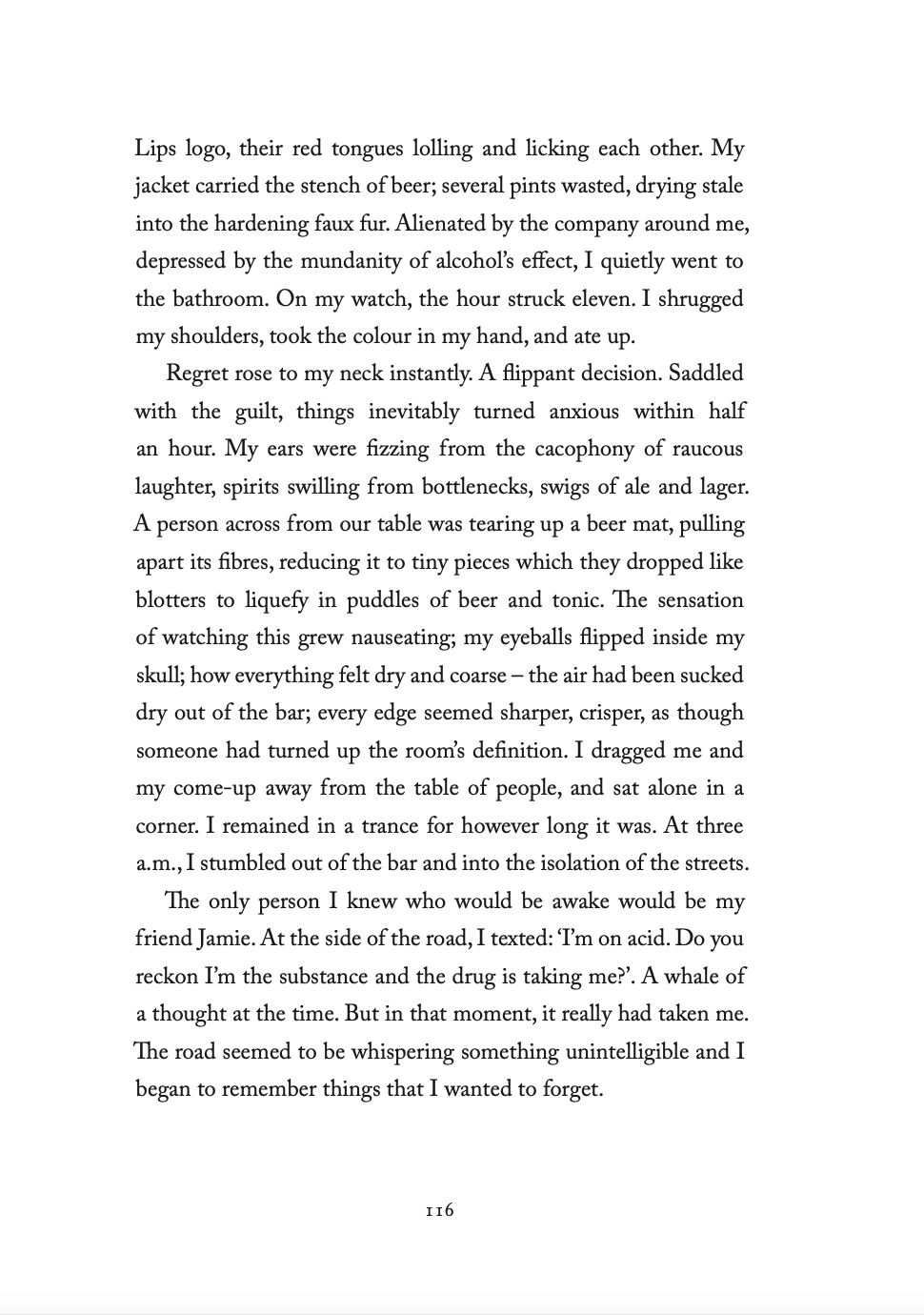
I medidate on the musician Burial, ‘Ashtray Wasp’ from his KINDRED EP (2012), psychedelics, and Cornwall.
TCHEKTCHOUKA
(Excerpt only)
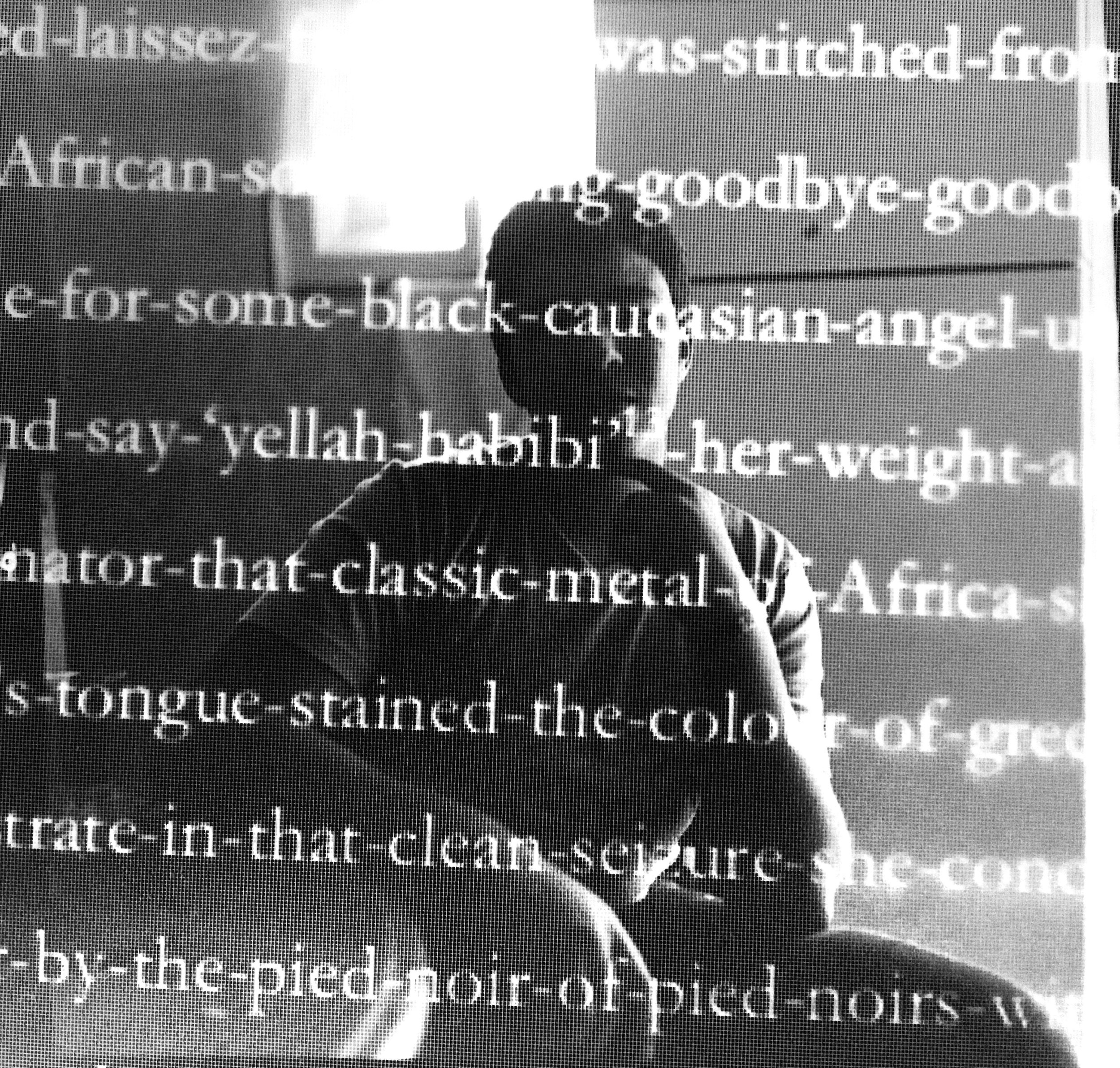
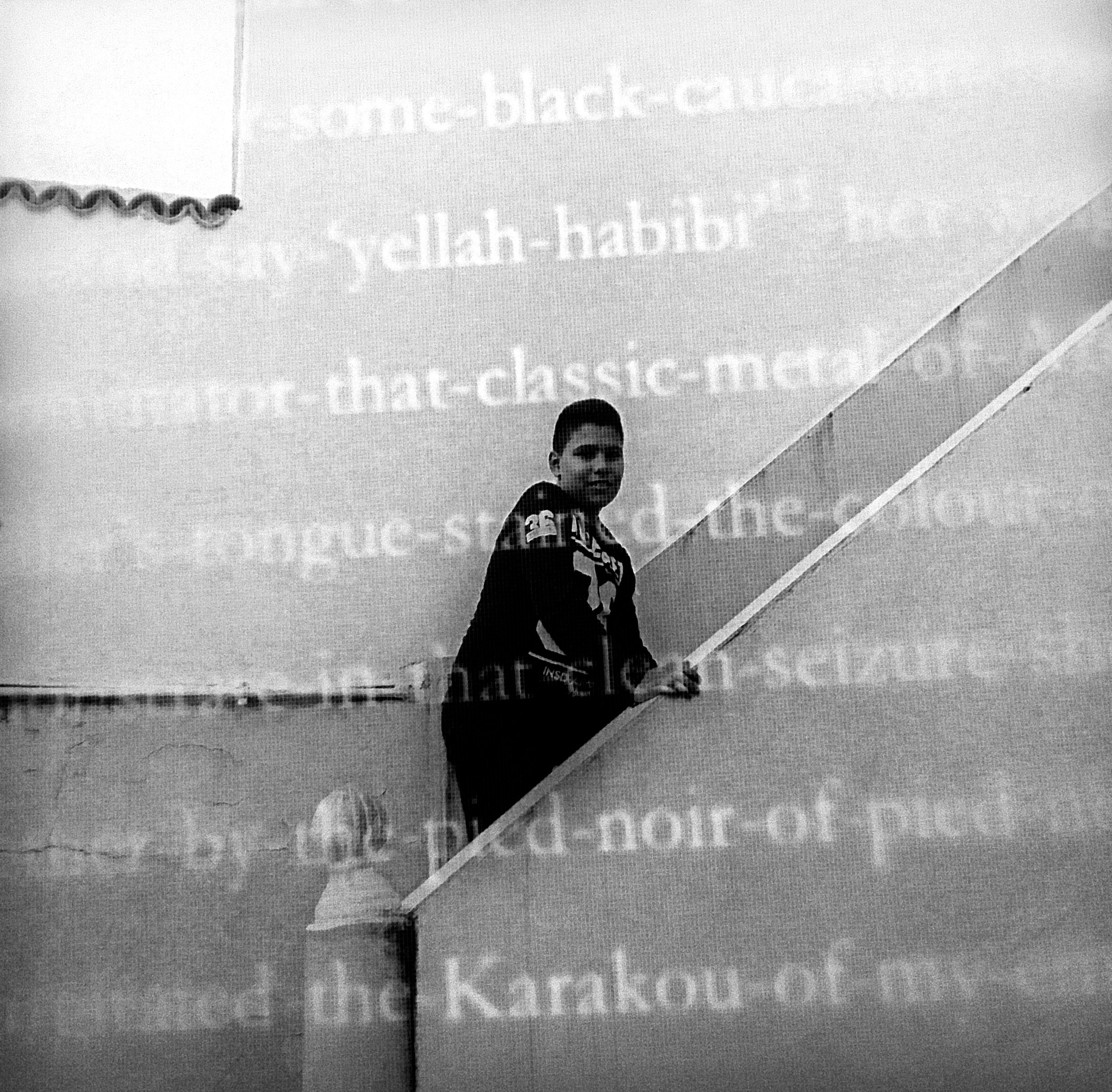
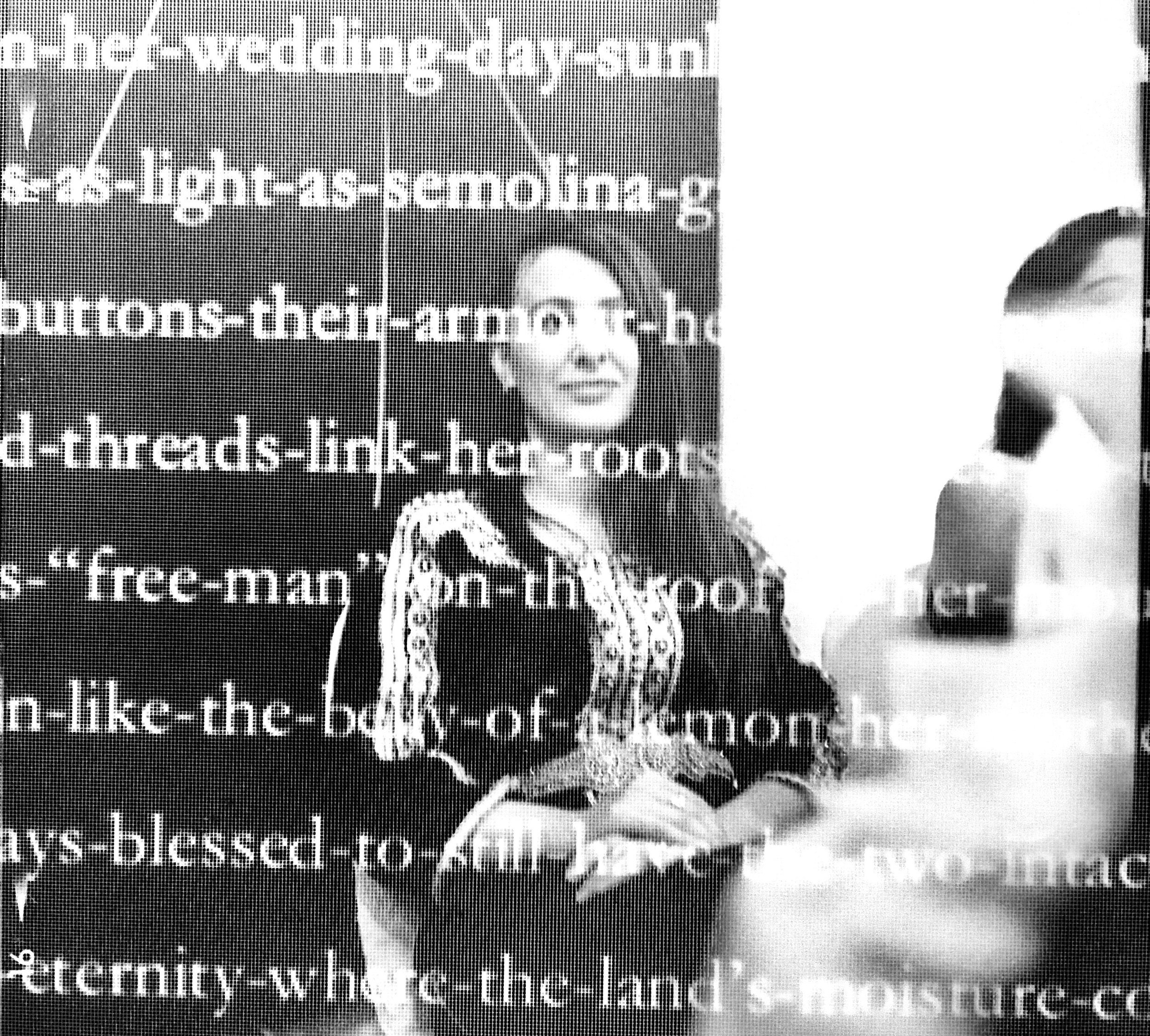
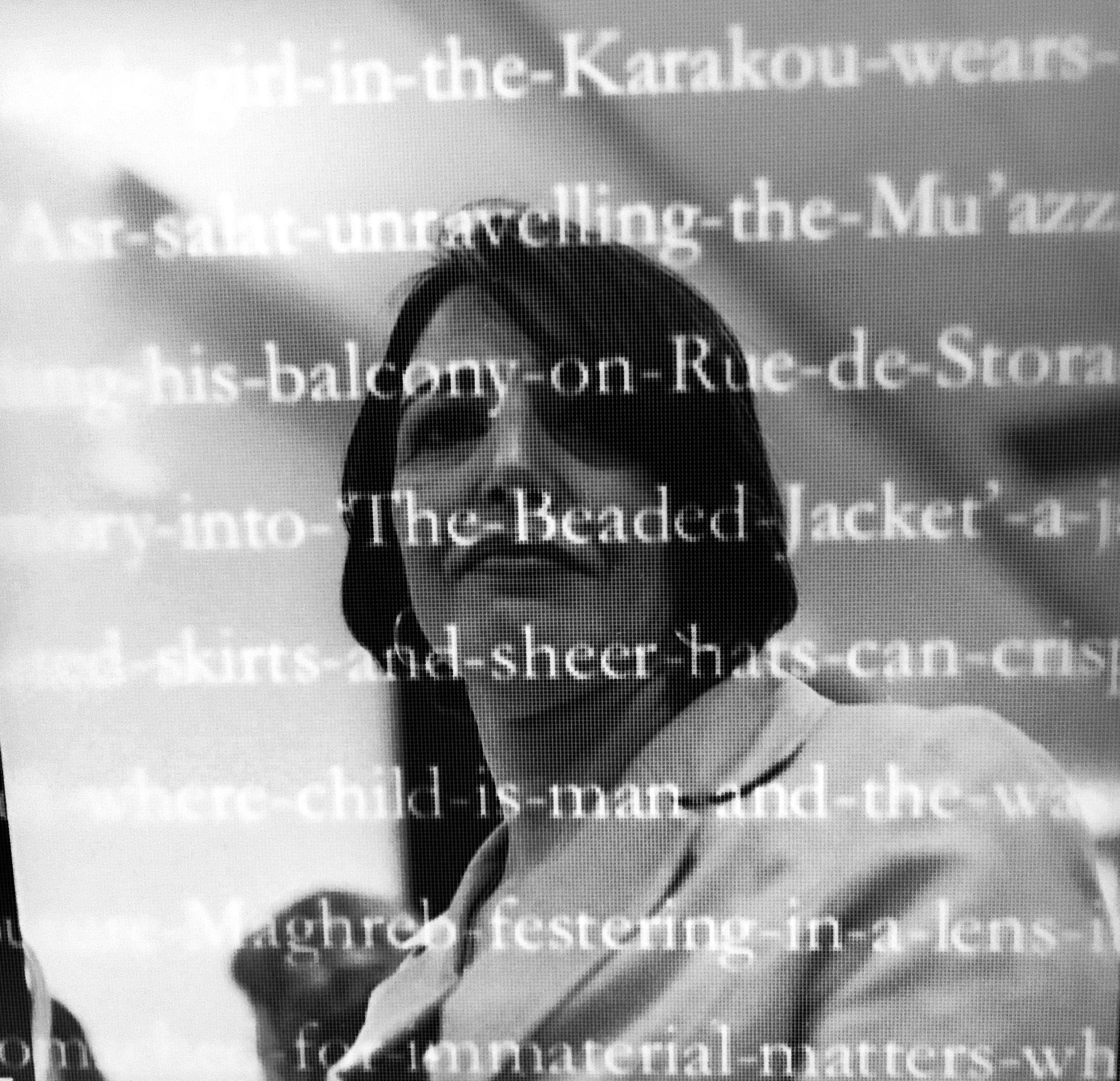
‘Tchektchouka’ is a North African dish made with peppers and tomatoes, resting eggs on top to cook. The word also means ‘mixture’. Tchektchouka, overlays autoethnographic research accounts in English on medium-format images of family preparing to go to a wedding. The mixing of families, languages, the hyphenation of people coming together are narrated in this short series of photo-texts.
Published here.

